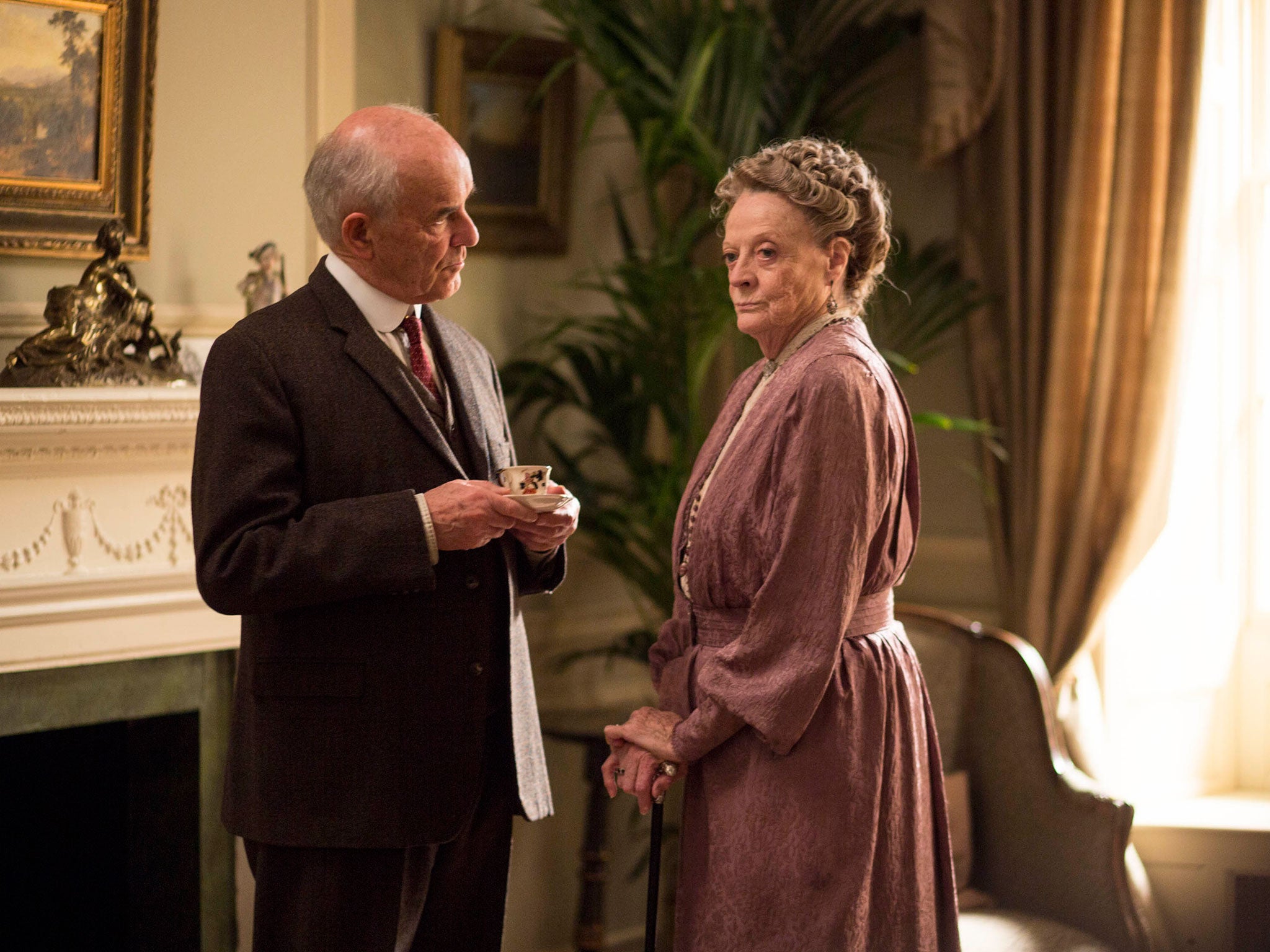Downton Abbey series 5, episode 1, ITV, review: There’s revolution in the air, but one lady’s not for turning
The progressive views of Tom’s new squeeze caused an upset at dinner, but below stairs it was conservatism as usual

Your support helps us to tell the story
From reproductive rights to climate change to Big Tech, The Independent is on the ground when the story is developing. Whether it's investigating the financials of Elon Musk's pro-Trump PAC or producing our latest documentary, 'The A Word', which shines a light on the American women fighting for reproductive rights, we know how important it is to parse out the facts from the messaging.
At such a critical moment in US history, we need reporters on the ground. Your donation allows us to keep sending journalists to speak to both sides of the story.
The Independent is trusted by Americans across the entire political spectrum. And unlike many other quality news outlets, we choose not to lock Americans out of our reporting and analysis with paywalls. We believe quality journalism should be available to everyone, paid for by those who can afford it.
Your support makes all the difference.The times they are a-changin’ in the fifth series of Downton Abbey, but not bloody fast enough. We’ve skipped six months since we last caught up with the Crawley clan and though the Earl of Grantham is disturbed by a Labour government in power, revolution at Downton seems a long way off.
The progressive views of Tom’s new squeeze Miss Bunting (Daisy Lewis) caused an upset at dinner, but below stairs it was conservatism as usual. The Dowager Countess’s silently snobbish butler made his views known by pointedly withholding tea from Dr Clarkson. Mrs Patmore and Mrs Hughes were divided over kitchen maid Daisy’s efforts to better herself though education and, most tellingly, there was Carson.
Poor, dear, class traitor Carson who insisted on deferring to the Earl even when asked to lead the village war memorial committee himself. “I feel a shaking of the ground I stand on,” he later confided in Mrs Hughes. “That everything I stand for will be tested and held up for ridicule in the next few years.” Let’s hope so.
It must have been a relief for Mrs Hughes to know that Carson still respected her after their raunchy hand-holding sesh in the Christmas special, but for the viewer this was one more Downton romance that remained frustratingly in stasis. Lady Mary was still umming and ahhing over her rival suitors, although she had at least come up with a daring way to break the tie: pre-marital hanky-panky. I’m sure the broadminded foster-farmer Tim would approve. He’s already helping Lady Edith pull off single motherhood with anachronistic aplomb. “We need a way for you to live the truth without telling the truth,” he suggested, sounding like a relationships counsellor on Oprah.
In Downton’s social revolution, as in its political one, it’s the older characters who play the most significant roles. The Dowager Countess deviously dismantled cousin Isobel’s chances of a high-ranking marriage, while keeping her own Wildean wit intact. “Principles are like prayers,” she counselled the younger Crawleys over dinner. “Noble, of course, but awkward at a party.” If this slow-moving series eventually unravels (as I think it must) into only the Dowager’s decrepit form, alone at Dower House, whispering cutting asides into the fire, we will be none the worse off for it.
Join our commenting forum
Join thought-provoking conversations, follow other Independent readers and see their replies
Comments